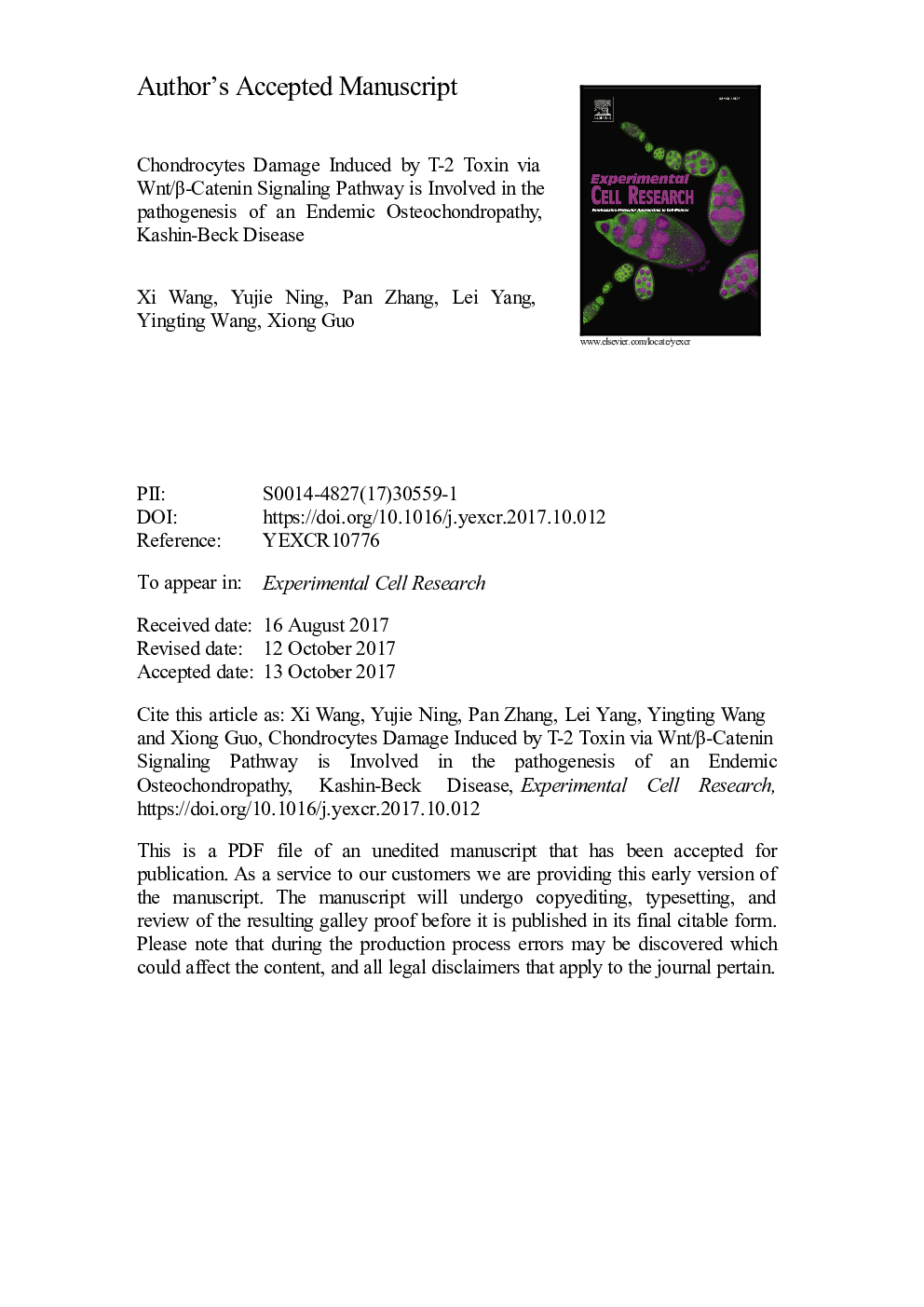| Article ID | Journal | Published Year | Pages | File Type |
|---|---|---|---|---|
| 8452032 | Experimental Cell Research | 2017 | 26 Pages |
Abstract
Kashin-Beck disease (KBD), an endemic osteochondropathy, is characterized by cartilage degeneration which is caused by abnormal catabolism in the extracellular matrix (ECM). In this study, we investigated the expression of the Wnt/β-catenin signaling pathway in KBD pathogenesis. Among the proteins involved in the Wnt/β-catenin signaling pathway, WNT-3A, FZD1, SOX9, and β-catenin were up-regulated, while FRZB was down-regulated in KBD cartilage. C28/I2 cells were evaluated for cell viability using the MTT assay after exposure to T-2 toxin, a suspicious environmental pathogenic factors of KBD. C28/I2 cells were treated with different intervening concentrations (0.001 μg/mL,0.005 μg/mL and 0.01 μg/mL) of T-2 toxin for 24 h. The expression of FZD1 and CTNNB1 (i.e.,β-catenin) was significantly reduced and SOX9 expression was significantly increased in chondrocytes after treatment with different intervening concentrations of T-2 toxin. Our results indicate that alterations in the Wnt/β-catenin signaling pathway in articular cartilage play an important role in the onset and pathogenesis of KBD.
Related Topics
Life Sciences
Biochemistry, Genetics and Molecular Biology
Cancer Research
Authors
Xi Wang, Yujie Ning, Pan Zhang, Lei Yang, Yingting Wang, Xiong Guo,
